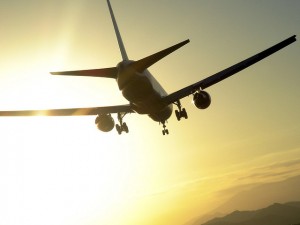What is Jet Lag?
Jet lag is the tiredness and lethargy experienced following a long haul flight, when the body’s natural rhythm or sleeping pattern is thrown out by crossing different time zones. Anyone can get jet lag, but it is more common, and the symptoms are more profound, in the over 60’s.
There are 24 different time zones in the world and when you cross these it can disrupt your body clock. For example, if you were flying from London to Bangkok, Bangkok is seven hours ahead of GMT (Greenwich Mean Time). If the flight left London at 9am, and the flight time was roughly 11 hours, the arrival time would be 8pm UK time, but 3am Bangkok time. You can see that thinking it is the evening when it is actually the morning will certainly throw out your body’s natural rhythm!
Jet lag cannot be completely avoided, but the symptoms can be reduced, and there are things that you can do to help your body clock adjust as soon as possible.
Preparing for Jet Lag – Before the Flight
It is a good idea to research the time differences from the UK, and start to change your sleep routine a few days before your flight departure. www.jetlagprevention.com gives you a personal plan to help you to prepare for the journey and reduce the effects of jet lag. You simply enter your flight times and destinations. It will then provide you with a plan of what to eat, when to eat and when to go to bed, so that you can be fully prepared for that all important long haul journey.
Do go to bed early and get plenty of sleep before your flight. You may also want to consider an online check-in, which is offered by most airlines these days. This will make check in quick and easy, reducing stress before the flight.
Reducing the effects of Jet Lag – During the flight
When you board the plane, or even before boarding, it is a good idea to adjust your watch to the time of your destination. It is easy to become dehydrated during a long haul flight, so drink lots of water. Avoid alcohol and caffine if possible, as they can contribute to the effects of jet lag. Ear plugs and an eye mask might help you to get more sleep during a flight – sleep as much as you can whilst on the plane. But do remember to take a walk around the cabin from time to time, and stretch your arms and legs whilst seated, to avoid Deep Vain Thrombosis (DVT).
Reducing the Effects of Jet Lag – When you Arrive at your Destination
When you arrive at your destination and experience jet lag, try to avoid napping as soon as you get there. Establish a new routine as soon as possible. It is a good idea to spend time outdoors, as the natural light will help your body to adjust.
Wherever you are travelling in the world, have a fantastic trip. Remember, you can always keep in touch with your friends abroad through PocketDial UK.


